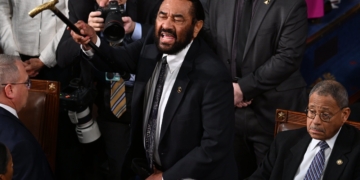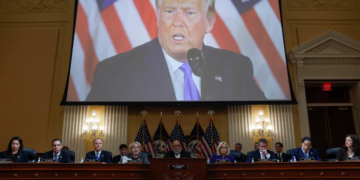The debate around voter identification laws in the United States has always been a controversial issue. Former President Donald Trump has once again placed this topic at the center of his political agenda, advocating for mandatory voter ID across all states. Supporters argue it is a necessary step to protect election integrity, while critics claim it threatens democracy and suppresses voters, particularly minorities and marginalized communities. The question remains: will Trump actually succeed in enforcing a nationwide voter ID requirement?
Historical Context of Voter ID in the U.S.
Voter ID laws are not new in America. Several states already require some form of identification before casting a ballot, while others allow voters to confirm their identity through alternative means such as affidavits. Proponents argue that identification ensures fairness, but opponents highlight that fraud cases in U.S elections are statistically negligible. This makes the push for strict voter ID laws appear more political than practical.
Trump’s Renewed Push
Trump has consistently claimed that the 2020 election was marred by irregularities, despite courts dismissing these claims. His renewed push for mandatory voter ID aligns with his broader message of “restoring trust in elections.” By promoting this policy, Trump is not just addressing his political base but also attempting to redefine the U.S. electoral landscape.
This push has been highlighted in several Breaking News outlets that follow Trump’s rallies and policy proposals.
Support from the Republican Party
The Republican Party has largely supported Trump’s stance. In conservative circles, voter ID is framed as a common-sense policy. Many GOP-controlled states are already strengthening their voting regulations, arguing that it brings the U.S. in line with other democracies that require identification. According to Trump News, several key Republican lawmakers are preparing draft bills for Congress to make voter ID a federal requirement.
Democratic Resistance
Democrats, however, view this as an attack on voting rights. They argue that such measures disproportionately affect low-income communities, minorities, and young voters—groups less likely to have government-issued IDs. Civil rights organizations have also warned that enforcing strict ID requirements could undermine the principles of accessible democracy. Coverage in U.S News emphasizes that Democrats are preparing strong legal and political battles against Trump’s proposal.
Public Opinion and Polarization
Surveys indicate that a majority of Americans, across both parties, support the idea of voter ID in principle. However, when informed about the potential challenges certain groups face in obtaining IDs, public opinion becomes more divided. The issue highlights the polarization in American politics, where policies are often shaped more by partisan loyalty than by consensus.
International media, including World, continue to monitor how this debate shapes the image of U.S. democracy globally.
Legal Challenges Ahead
Even if Trump regains power and pushes through mandatory voter ID, he will face significant legal hurdles. The U.S. Constitution grants states the authority to run elections, meaning federal enforcement of voter ID laws could trigger constitutional battles. Courts would inevitably play a central role in deciding whether Trump’s vision aligns with constitutional principles or undermines state rights.
The Economic and Administrative Impact
Implementing a nationwide voter ID system would require substantial funding and administrative adjustments. Millions of Americans without valid IDs would need access to free or low-cost identification. States would have to set up systems to distribute IDs efficiently, which could strain budgets and local resources. Critics argue that the economic cost outweighs the benefits, given the extremely low rates of proven voter fraud.
International Comparisons
Trump’s allies often point to other countries, such as India and several European nations, where voter ID is mandatory. However, experts highlight that these systems were introduced under very different political and social circumstances. The U.S. has a unique federal structure, deep racial history, and varying access to government services, making direct comparisons misleading.
Could This Backfire on Trump?
While the push for voter ID energizes Trump’s base, it could also alienate moderate voters. Democrats may use this issue to rally turnout, framing Trump as a threat to democratic values. If implemented poorly, mandatory ID laws might discourage participation, especially in swing states, creating political risks for Trump himself.
Analysis and Conclusion
The push for mandatory voter ID reflects Trump’s broader strategy to reshape the electoral system in his favor. While the policy resonates with many Americans who value election security, its legal, economic, and social implications make nationwide enforcement highly uncertain. The strong resistance from Democrats, civil rights organizations, and legal experts suggests that even if Trump regains the presidency, his success in enforcing such a law is far from guaranteed.
In conclusion, the battle over voter ID is not just about preventing fraud; it is about shaping the future of democracy in America.













